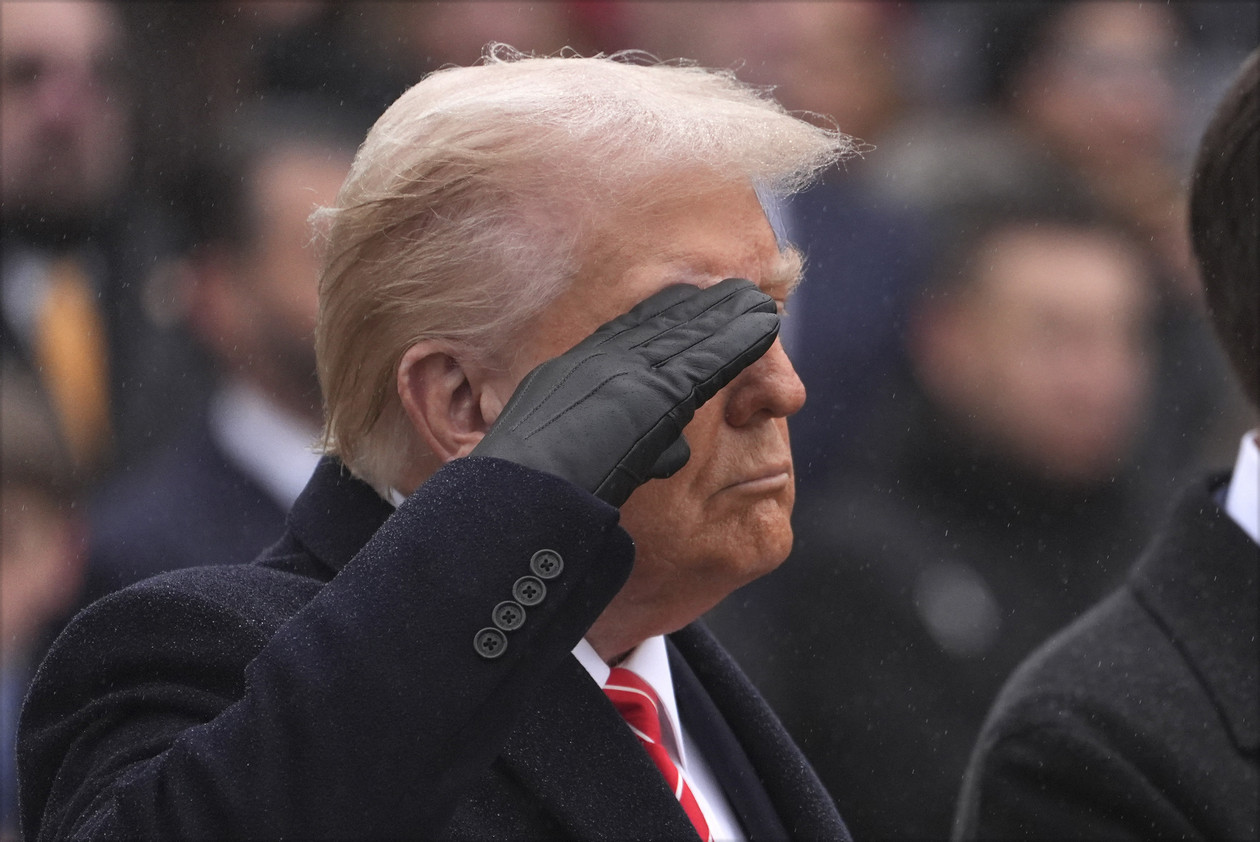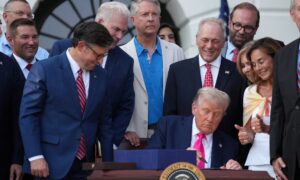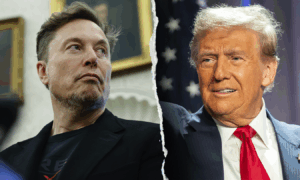Donald Trump will take office as the 47th President of the United States at noon Monday, marking an extraordinary and daring return to the White House after being convicted on 34 criminal charges and surviving an assassination attempt that left him bruised and defiant.
His early actions indicate that the personal feeling of vindication Trump brings to Washington after four years out of government has not shaped the former president into a more conventional politician. Rather, he enters office more empowered and demanding of devotion than ever before — and determined to get retribution on his perceived political foes, including those who attempted to hold him responsible. His policy aspirations have risen considerably, including mass deportations, vast tariffs, and an unexpectedly expansionist foreign policy that might entail military action in Greenland and Panama.
However, as Inauguration Day approaches, Trump’s friends and allies agree that not only has the country changed since his last presidency, but Trump has also evolved in at least one manner. After four years in office, the president is more secure in his talents and more aware of Beltway politics and processes, even if his personal inclinations remain unchecked.
Behind him is the GOP’s broadest and most diverse coalition in recent memory, which includes not only longtime loyalists and MAGA supporters, but also Wall Street executives, corporate America, tech and crypto bros, social conservatives, and a large swath of working-class and union voters who used to vote Democratic.
He’s backed by an army of like-minded Cabinet members and political appointees who, unlike some of their predecessors four years ago, not just tolerate but enthusiastically support the MAGA cause and are determined to root out any “deep state” resistance in the federal government. By and large, they have promised personal fealty to Trump, supporting his fraudulent assertions that he won the 2020 election.
“He understands the office.” He understands the government better. “He has complete trust in the people around him,” said Trump fundraiser and lobbyist Brian Ballard. “When he first arrived eight years ago, he did not receive the customary, ‘Let’s give this person a chance.’ I was at the inauguration, and the next day, a million people protested against him.”
“He has a governing mandate, and I think it’s going to show,” Ballard continued.
In some respects, Monday also marks the end of the tale, which began when Trump refused to acknowledge the 2020 election results and pushed his followers to lay siege to the Capitol. However, after four years of economic stagnation and blaming Joe Biden for their problems, people welcomed Trump back in November with greater support than he received in his first campaign. This morning, his followers will be welcomed into the Capitol, which was previously invaded by his supporters, a move made feasible by the freezing weather outside and a dramatic contrast to events four years ago.
Trump will be sworn in inside the Capitol Rotunda rather than outside on the West Front, a change in site that has not occurred since Ronald Reagan’s outdoor event was canceled in 1985 due to comparable severe weather circumstances.
Trump will begin Inauguration Day with a ceremony at St. John’s Episcopal Church, as is customary for newly elected presidents. He and new First Lady Melania Trump will next go to tea with President Joe Biden and First Lady Jill Biden, a traditional Inauguration Day event. Following that, he will travel to the Capitol for the ceremony.
He will be sworn into office about noon and will deliver his second inaugural address. Senior advisers Vince Haley, Stephen Miller, and Ross Worthington oversaw the speech’s preparation.
The president-elect has pledged to get off to a fast start. He told NBC News on Saturday that his short-term goals include implementing mass deportations, visiting Los Angeles in the aftermath of terrible wildfires, and issuing a “record-setting” amount of executive orders immediately following the address.
To about half of the population, Trump’s return to the White House represents a dark period in the country’s history, the rise of a guy who they feel would destroy democracy and use the position to target his political opponents. To the other half, it is an inspiring, if nationalistic, time for change and a necessary reckoning with policies that they feel have failed ordinary Americans, such as lax border security and heavy-handed government control of education, health, and energy.
Americans “lived through the end of Trump, and they lived through four years of Biden and Harris, and most Republicans came flocking back to Trump, and they weren’t willing to let one issue or one bad day get in the way of what they knew was a clear choice,” said Scott Jennings, a Republican strategist who was considered for the position of White House press secretary. “The throughline for a lot of Republicans is basically Donald Trump’s going to defend Western civilization.”
Trump returns to Washington with the weight of history on his shoulders, having not only won the popular vote, which no Republican president has done in two decades, but also becoming only the second president, after Grover Cleveland, to retake office after losing the previous election. He is also the oldest man elected president, following an election year characterized by doubts about Biden’s age and mental acuity, which forced him to withdraw from the race and allow Kamala Harris to take over the mantle five months before Election Day.
Trump is also the first president to be both convicted and inaugurated as a criminal, having been found guilty of falsifying company records in connection with a payout to Stormy Daniels, a porn star who claimed she had a sexual encounter with him. He was sentenced to a “unconditional discharge” earlier this month, which means he will face no further penalties. His victory has also averted additional criminal trials, including those related to his attempt to subvert the 2020 election and hoard classified documents at Mar-a-Lago, which could have resulted in additional penalties.
Trump friends concede that, despite their initial certainty, the presidency — and Trump’s popularity — might swiftly deteriorate.Trump has pledged to solve a slew of complex issues overnight, including inflation, conflicts, and immigration, which might be a difficult task.
“We have less than two years,” said one close Trump aide, describing the feeling of urgency he has conveyed to the president’s team. “People have to start feeling it.”
President-elect Donald Trump wrapped off his final victory rally on Sunday evening, honing his performance ahead of Inauguration Day. This time, he brings onstage Village People to perform their high-energy disco classic and dance alongside him.
During his 2024 campaign, Trump completed over 110 rallies by doing his characteristic move, a double closed fist arm punch with swaying hips, to Village People’s popular song, “Y.M.C.A.”.
The jig has been dubbed the ‘Trump Dance,’ with various athletes, social media users, and fans hopping on board for what some think is the trendiest craze since Trump declared victory in the 2024 election.
Trump would occasionally throw in a point to the audience, a wave, or even a golf swing as his fans roared in celebration of his often lengthy speeches full of promises he intended to deliver to his impending government.
On Sunday, when the lines “there’s no need to feel down… pick yourself off the ground” were heard, the audience went crazy, bopping along across Washington, D.C.’s Capital One area.
Trump danced to the track, using his characteristic motion as Village People presented a captivating choreographed performance.
To mark the end of Trump’s campaign, supporters flashed placards, raised their palms to the crucial letters, and roared.
Some even modified the acronym Y.M.C.A. to M.A.G.A. to honor Trump’s campaign slogan.
Village People are no strangers to Trump, since their single Macho Man is also on the president-elect’s playlist; nonetheless, the relationship between the two has been rocky.
The group once sent Trump a cease-and-desist letter for utilizing their tune during his rallies. Fast forward, and the band is performing all weekend at various Trump inaugural parties.
“Our music is all-inclusive, and everyone is welcome to perform the Y.M.C.A dance, regardless of political affiliation,” the organization previously stated on Facebook.
“Having said that, we certainly don’t endorse his use as we’d prefer our music be kept out of politics.”
The ‘Trump dance’ dates back to October 2020, when Trump attempted to emphasize his recovery from his COVID-19 diagnosis by doing a few shimmy shakes at a rally in Florida.
The Village People’s performance at Trump’s last victory rally rounds off a star-studded inauguration roster, which includes Carrie Underwood, who will play during Trump’s swearing-in on Inauguration Day.









